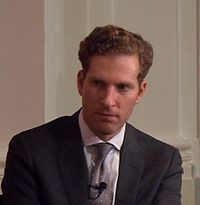
Perhaps no other Western writer has more deeply probed the bitter struggle in the Muslim world between the forces of religion and law and those of violence and lawlessness as Noah Feldman. His scholarship has defined the stakes in the Middle East today. Now, in this incisive book, Feldman tells the story behind the increasingly popular call for the establishment of the shari'a—the law of the traditional Islamic state—in the modern Muslim world. Western powers call it a threat to democracy. Islamist movements are winning elections on it. Terrorists use it to justify their crimes. What, then, is the shari'a? Given the severity of some of its provisions, why is it popular among Muslims? Can the Islamic state succeed—should it? Feldman reveals how the classical Islamic constitution governed through and was legitimated by law. He shows how executive power was balanced by the scholars who interpreted and administered the shari'a, and how this balance of power was finally destroyed by the tragically incomplete reforms of the modern era. The result has been the unchecked executive dominance that now distorts politics in so many Muslim states. Feldman argues that a modern Islamic state could provide political and legal justice to today's Muslims, but only if new institutions emerge that restore this constitutional balance of power. "The Fall and Rise of the Islamic State" gives us the sweeping history of the traditional Islamic constitution—its noble beginnings, its downfall, and the renewed promise it could hold for Muslims and Westerners alike.
Author

Noah Feldman is an American author and professor of law at Harvard Law School. Feldman grew up in Boston, Massachusetts, where he attended the Maimonides School. He graduated from Harvard College in 1992, ranked first in the College, and earned a Rhodes Scholarship to Oxford University, where he earned a D.Phil in Islamic Thought in 1994. Upon his return from Oxford, he received his J.D., in 1997, from Yale Law School, where he was the book review editor of the Yale Law Journal. He later served as a law clerk for Associate Justice David Souter on the U.S. Supreme Court. In 2001, he joined the faculty of New York University Law School (NYU), leaving for Harvard in 2007. In 2008, he was appointed the Bemis Professor of International Law. He worked as an advisor in the early days of the Coalition Provisional Authority in Iraq following the 2003 invasion of the country. He regularly contributes features and opinion pieces to The New York Times Magazine and is a senior adjunct fellow at the Council on Foreign Relations.